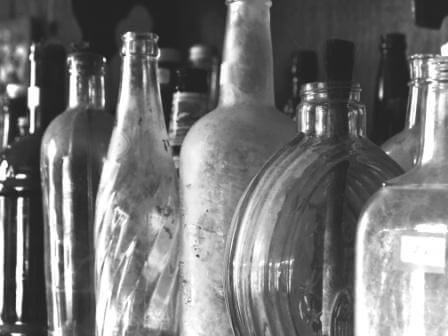
06 Jan The History of Recycling and How It Has Evolved
The History of Recycling and How It Has Evolved
 Throughout the centuries, the use and reuse of material and natural resources has been critical to the development and survival of human civilizations, particularly in times of austerity. The main goal of recycling is to get rid of waste by transforming items that are unusable in their current state (broken, depleted, etc.) into new items by first returning them into the original materials they were initially made from.
Throughout the centuries, the use and reuse of material and natural resources has been critical to the development and survival of human civilizations, particularly in times of austerity. The main goal of recycling is to get rid of waste by transforming items that are unusable in their current state (broken, depleted, etc.) into new items by first returning them into the original materials they were initially made from.
Recycling Throughout History
Through intense processing and advanced technologies, nowadays people can obtain similar products from a wide range of distinctly sourced materials – but this was not always the case. For example, the shortage of local resources as well as failure to manufacture imperiously demanding items such as metallic weapons have frequently caused civilizations to melt the damaged ones, as well as any other metallic items of all kinds, and reuse them to make new weapons.
Evolution of Recycling
In the Mediterranean area, there are records of broken glass being reused into new objects. In ancient Rome, bronze coins were reused via the same method to transform them into ornaments. During the same historical period, ceramic was another material which was subjected to a recycling process. Textiles recycling and metal scrapping essentially continued throughout the Middle Ages and pre-industrial times.
The 20th Century
The beginning of the 20th century was dominated by extreme industrialization and recycling those days was put on the back burner as materials. And when the second World War began, the need for the careful use of available resources arose – as a result, recycled products became more abundant. The war generated an overall deficiency of everyday use products as well as food rationing. It also became the cause of intense campaigns calling for recycling and reuse of anything suitable. After the World War, some countries preserved that trend, whereas others (particularly western ones) became more wasteful. In those certain countries, the interest in recycling and environmental issues was basically raised during the 1960s. At that time, the hippie generation played an important part in rebelling and campaigning against consumerism and monopoly of large corporations over markets and resources. In 1986, a bill was passed in Europe as an official proposal to protect the environment. Later, EU directives related to avoiding excessive packaging and waste reduction were in place a few years later.
Present Day
Today, recycling is present in all developed countries in the world; from individual homes to private businesses and public institutions. It mostly targets metal, glass, paper, and plastic, although it is also common to recycle electronics and textiles. It is included in various popular events such as arts and music festivals, which some decades ago used to generate significant amounts of waste – but today, they try to outperform each other in being environment-friendly and greener.
Campaigns for an ample focus on recycling are more frequent these days. These campaigns are supported by the entire mass-media and reach entire populations and have higher success rates. Today, it is not just a trend, it has become an industry itself with a variety of products that facilitate it, such as recycle bins, in addition to television programs, publications, stickers, posters, and so forth.
H-West Equipment, Inc is a provider of recycling equipment for recycling centers, based in Orange, CA. We sell and service every piece of equipment necessary, from Balers to Compactors, to Shredders, Conveyors, and much more throughout California, Arizona, Nevada and Northern Mexico. We also provide parts and expert service throughout the same coverage area. For consultation, or to schedule service, reach us through our contact form or call us at our corporate office in Orange CA at (714) 289-7733 today!





